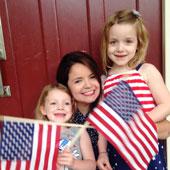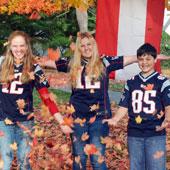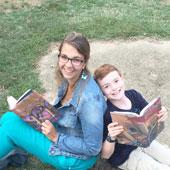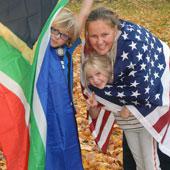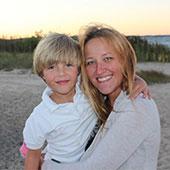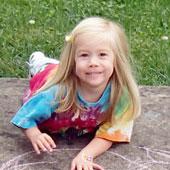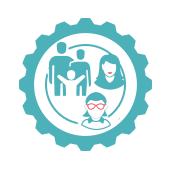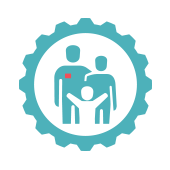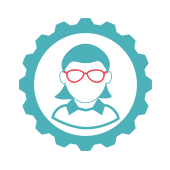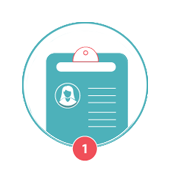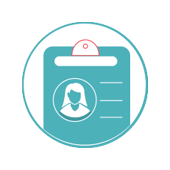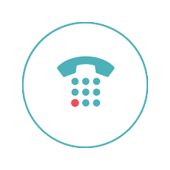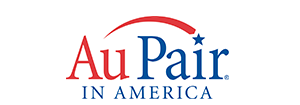The Au Pair program option is the most popular choice for most host families, providing flexible, affordable, and intercultural live-in care for infants, toddlers and school-aged children.
All candidates for the program:
- are between the ages of 18 and 26.
- have at least 200 hours of recent, practical child care experience such as regular babysitting for non-family members or assisting at a local school or youth group. Au pairs who care for children under the age of two will have a minimum of 200 hours of documented experience with children under the age of two.
- speak English to an acceptable standard.
- have earned a secondary school diploma or equivalent. Some may have completed university-level coursework.
- submit a medical report prior to entering the U.S.
- possess a valid driver’s license. In countries where attainable, we request applicants secure an international driver’s license. They may also be required to obtain a license in your state.
- have successfully passed a background investigation, which includes verification of schooling, references, psychometric test and a criminal record check (where available within the scope of the laws of a given country).
Au pairs and companions generally have no formal child care training. For au pairs with formal training or two years of full-time child care experience, refer to our Extraordinaire program.
This program is the program of choice for families who seek au pairs who have a formal educational child care degree or two years full-time experience.
In addition to standard requirements to be an au pair, Extraordinaire candidates either have completed a full-time, two-year academic course in child care or are at least 20 years old and have two years full-time experience as a nanny, child care provider or nursery school teacher. Details of formal child care degrees are provided to host families during the placement process and are summarized below. The supply of these special au pairs is extremely limited, so apply early to avoid disappointment. If interested, check the appropriate box on the host family application.
Au Pair Extraordinaire formal training by country
Details on the formal child care degrees held by each applicant are provided to the host family during the placement process. A summary of the formal child care certificates held by applicants from our most popular countries include:
Australia
- Diploma/Associate Diploma of Community Services (Child Care) is earned after two years of supervised field work with infants and preschoolers in a range of child care settings.
- Bachelor of Teaching (Early Childhood Education) is earned after three years of course work aimed at educational and care services for children up to eight years of age.
- Bachelor of Education – Early Childhood Education, Honors Year Program a one year, full-time course serves as a continuation of the Bachelor of Teaching – Early Childhood Education degree.
Austria
- Diploma in Kindergarten Teaching (KindergartenpSdagogik) This five-year course is taught at the Academy of Kindergarten Pedagogy. It is a nationally recognized qualification for those wishing to teach in a kindergarten with children aged three to six years old, or work in a crêche with newborns to three year olds.
- Diploma in Educating (Sozialp Sdagogik) The syllabus is almost identical to the Diploma in Kindergarten Teaching, but the main focus is the particular needs of school children six and older.
- Diploma in Children’s Nursing (Kinder und Jugendlichenpfelge) The diploma is attained through a three-year, full-time course at a nursing school. The training comprises all the necessary medical and psychological knowledge to take care of children with mental or bodily illnesses, of healthy newborn babies and of handicapped and seriously ill children.
Brazil
- Bachelor of Pedagogy Prepares graduates to teach students ranging from pre-school to high school aged children.
Canada
- Diploma of Early Childhood Education Two-year course taken through a community college. The main focus is practical child care experience within child care centers and kindergartens.
- Child and Youth Worker Diploma Two to three years of full time study. Candidates focus on individual growth and development, for those interested in working in specialized educational programs, school, youth detention centers, before and after care programs, community work with children and youth and family homes.
- Developmental Services Worker A two-year full-time diploma course. Graduates provide support to individuals and families to enhance quality of life and facilitate inclusion at home, school, work and in the community.
Costa Rica
- Bachelor of Pre-School Ed A four-year university level course preparing graduates to teach in state or private schools as primary school teachers. The course will enable graduates to teach in either English or Spanish as the last year of the course is taught only in English.
Germany
- Children’s Nurse (Kinderkranken Pflegerin) During three years of training at nursing schools, students learn how to care for newborns and small children, emergency measures, preventive health care, care of illnesses and administering medication.
- Child Care Giver (Kinderpflegerin) Two to three years of training at vocational schools specializing in child care. A mandatory curriculum provides practical experience in kindergartens or homes with newborns.
- Educator (Erzieherin) Three years of training as an educator includes a year of on-the-job training accompanied by theoretical lessons after two years of general and specialized classes in subjects such as psychology, hygiene, literature and media education, play and leisure time activities, music, health and physical education.
Hungary
- Diploma in Kindergarten Teaching (Ovoda Pedagogus) A three-year course taught at Teacher’s Training College. Program includes practical training one day per week working in child care institution and one month in second and third year in kindergarten placement.
Poland
- Diploma in Child Care (Opiekunka do Dziecka) Two-year course which includes a minimum of 180 hours each of the two years in practical training placement which may include working in a crêche, kindergarten or orphanage.
Romania
- Diploma of Pedagogical High School A five-year program. Students start their studies at the age of 14 years old. A graduate with this degree will be allowed to work in a supervised classroom as an assistant to kindergarten or primary school classes. The kindergarten qualification exam must be passed in order for candidates to become qualified teachers.
- Bachelor of Pedagogy – Institutor A three-year university level qualification. Candidates are placed in nursery schools and primary schools throughout the course. Students have the option to specialize in foreign language teaching. Graduates are qualified to teach in nursery schools and primary schools (children aged 4 -10 years old).
South Africa
- N6 Certificate This two-year program includes 18 months of field work. First aid training is included with courses in child health, immunization and day care management.
- National Diploma: Residential Child Care Three-year course taught in colleges of further education. Students are closely supervised by a recognized Child and Youth Care practitioner during six-month assignment at an institution such as day-care and play centers.
- Diploma in Education – Junior Primary Care Three-year university degree course focusing on children up to 11 years of age.
Sweden
- Children’s Recreational Program (Barn och Fritid) This three-year senior high school program is designed to give students basic vocational training for activities within child care.
- Early Childhood Education, International Program Four-year international program in early childhood education leading to a BA degree in pedagogy, child and youth studies.
Thailand
- Nursing Degree + 1 yr experience A four-year university level course. This course focuses on all aspects of clinical and community nursing care. Graduates go on to become nurses.
- Bachelor in Education A four-year university level course. The primary focuses for candidates are: effective teaching skills and methodology, child development and educational psychology. Practical training is done in the fourth year for 8 months. Graduates go on to work in elementary schools or secondary schools as teachers.
This cost-effective program is the choice for families with full-time school-age children who require care primarily during the early morning and after school hours, with some weekend and evening hours. Available in select communities only.
EduCare companions must fulfill the standard requirements to be an au pair. Please note that this program option is only offered in the following areas:
- Colorado: Denver
- Connecticut: Lower Fairfield County, New Haven, Hartford County, Oxford, Newtown, Sandy Hook
- Delaware
- Georgia: Atlanta and suburbs
- Illinois: Greater Chicago Area
- Indiana: Indianapolis and suburbs
- Kansas: Greater Kansas City Area
- Maryland: Anne Arundel, Baltimore, Frederick, Howard, Montgomery, and Prince Georges counties
- Massachusetts: Boston and suburbs
- Michigan: Ann Arbor (Washtenaw County and North) and the Detroit Metro Area
- Minnesota: Minneapolis and Hugo areas
- Missouri: Greater St. Louis area
- New Jersey
- New York: Cortland, Dutchess, Monroe, Orange, Rockland, Tompkins, Ulster and Westchester counties, Saratoga Springs and suburbs
- North Carolina: Durham, Orange and Wake Counties
- Ohio: Cleveland, Columbus
- Oregon: Portland and suburbs
- Pennsylvania: Philadelphia and suburbs, Pittsburgh
- Rhode Island: Providence and suburbs
- Texas: Austin and suburbs, Dallas and suburbs, Fort Worth and suburbs, San Antonio and suburbs
- Vermont: Stowe, Montpelier, Burlington and suburbs
- Virginia: Aldie, Bristow, Centreville, Culpeper, Dale City, Dumfries, Fauquier, Frederick, Gainesville, Haymarket, King George, Manassas, Marshall, Occoquan, Prince William, Stafford, Spotsylvania, Stone Ridge, Warrenton, Winchester and Western Loudoun counties, Woodbridge, West Virginia and the city of Fredericksburg
- Wisconsin: Madison
Please call (800) 928-7247 and press 1 for details regarding availability.
Year2 au pairs are standard au pairs, Extraordinaire au pairs and EduCare companions who have completed a 12-month placement with Au Pair in America and are seeking placement with a new family for their extension term.
Au pairs may extend their stay to remain an additional 6, 9 or 12 months after their first year on the program. Some elect to be placed with a different family during the extension term and bring a unique level of experience having already spent one year in the U.S.
If a host family chooses to match with a Year2 au pair or companion, they benefit from hosting a participant with previous live-in child care experience. Additionally, Year2 au pairs are already in-country and may be able to join your family faster. However, the number of Year2 au pairs is limited.

